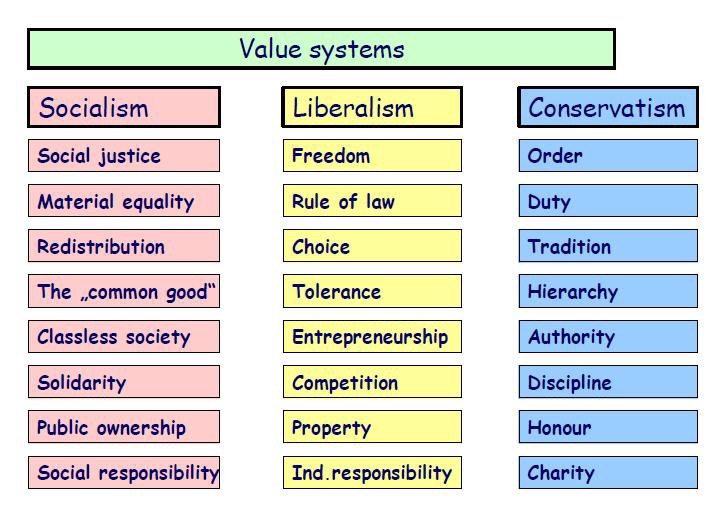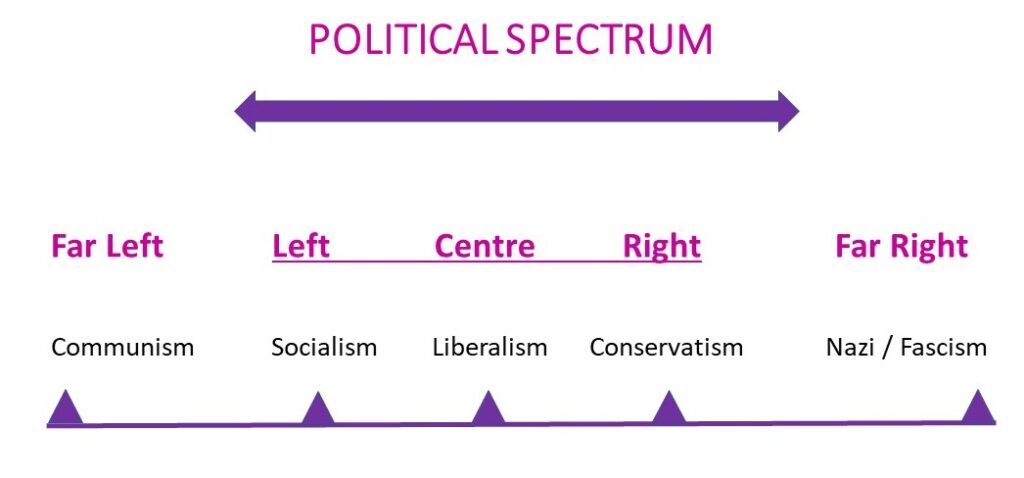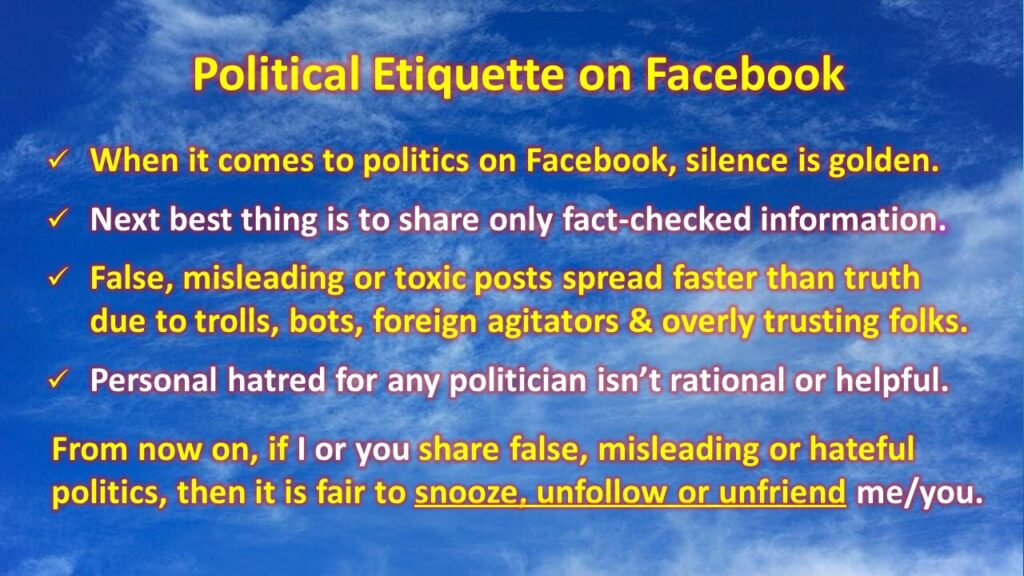Political Etiquette Online
In every age group, the majority of us dislike false, misleading or toxic politics on social media. Savvy seniors are no exception. With that in mind, let’s do what we can to encourage political etiquette online in Canada. The first step is to brush up on the basics of politics in general.

Let’s take the fear and extremism out of politics by understanding that all moderate parties on the right, left and centre have good core values (see diagram below). None of these values is scary unless they are abused or taken to the extreme.


Whichever value system closely matches your own – and whose real-life policies are agreeable to you – then that is the party with the best fit for you. However, that doesn’t mean the other choices are evil. Understanding the different value systems makes us informed and rational voters, not voters who can be influenced by false, misleading or hateful posts on social media.
The Political Spectrum
Informed voters know where political parties are located on the spectrum. They understand that moderate policies and moderate politicians exist in many parties that aren’t extreme. Unfortunately, there seems to be some confusion about this on social media, so this graphic may help.

To Fact Check or not to Fact Check?
Not everyone has the time or interest to fact-check political posts on social media. In that situation, there are two choices – stay silent about politics online or be mindful of the risks. If we spread false or hateful political claims, it can easily damage our friendships, our reputation and the respect that others have for us.
If we do have the time and interest to fact-check, then it is for a good cause, but it is also no picnic. It is depressing and demoralizing to see so much disinformation (deliberate lies) and misinformation (mistakes). Even so, someone has to expose and discourage the negativity and harm being done by lies the internet told us.

The basics of political fact checking are as follows:
1) Find the original source of a political claim. Don’t just trust a headline, a picture or your friend’s friend on Facebook. Click on the actual link.
2) Inspect the source to assess their credentials, motives, fairness and integrity.
- If the source is a website or person you never heard of, then that’s a red flag. Either ignore their claims or fact-check them. After all, anyone can start a website or open a Facebook account.
- If necessary, type the name of the source (writer, organization, group etc.) into Google or Wikipedia.
- If a Facebook post is labelled as “Sponsored” at the top, that means a person or group paid to have that information sent to Facebook users.
- If a news article is labelled as “Commentary” or “Opinion”, then it is just one perspective which may or may not be informed by facts and fairness.
3) Check other sources:
- Go to fact-checking websites to see if they investigated the claim. Some examples are: FactsCan.ca, Politifact.com, Snopes.com and FactCheck.org.
- Cross-check the claim against at least one familiar and trusted source. Research the topic by typing key words into Google, etc. Look at the actual name of the website before clicking on their link. Do you have any reason to trust that website as a source of facts and expertise? If not, bypass them and find a better source.
Who the Heck Does What in the News?
Seniors barely recognize the news business these days when compared to what we grew up with. All the more reason to learn what makes news media tick in the year 2020.

Professional journalists are expected to uncover the whole truth and report objective news according to ethical standards. Their work involves facts and presenting all sides of an issue. They may or may not be good at keeping their own opinions in check, but technically they should. To verify a journalist’s education and experience, use Wikipedia and their news website profile.
Political commentators or analysts don’t report the news; they just comment on it. They offer insight or opinions, often from a one-sided or biased perspective. If a TV political program is balanced, it will include a panel of commentators representing the right, left and centre of politics.
Soft News (infotainment). With political news being widely available online now, the competition is fierce. To survive, some news delivery is becoming a blend of information and entertainment. Their news may be more about strong emotions and opinions, exaggerated headlines, inflammatory claims or hostile commentary… and less about facts and objectivity. Consumer beware!
News media owners may or may not have a political bias that governs what is reported through their news outlet and what is omitted. That is why it is always wise to use more than one news source when fact checking.
Political Detox
It’s never too late to clean up the unhealthy political environment that has taken over social media, especially Facebook. As such, this is an appeal to decent folks to do their part by discouraging false, misleading or toxic politics online. Please insist on facts and civility or political silence. Here’s how.
Most of us who are age 55+ know that the following saying is wise and true: without consequences, bad habits never change. The same applies to Facebook users who support inaccurate or malicious content about Canadian politics. Without mild consequences on Facebook, their current habits will remain unchecked, unchallenged and unchanged. If some of them are our Facebook friends, then here are some actions to consider:

1. Remain silent on politics altogether. [Unfortunately, this option has no consequences for those spreading misinformation or disinformation. They continue to influence and polarize Canadians. Our silence may also give the impression that we agree with them.]
2. Or… Quietly snooze, unfollow or unfriend the source on Facebook. [Again, there are no obvious consequences, since the source isn’t usually aware of these actions on our part. However, at least we don’t have to see their harmful posts for a month or longer.]
3. Or… Openly take a stand for decency and political etiquette by posting an announcement on Facebook to declare your intentions. For example: “From now on, if I or you post, share or support false, misleading or hateful politics on Facebook, then it is fair to snooze, unfollow or unfriend me or you.”
4. Or… Share this prepared post on Political Etiquette (available on Facebook by searching for the account named “Lies the Internet Told Us”).

~ Written by K. Wood (age 67)
Comments are closed.